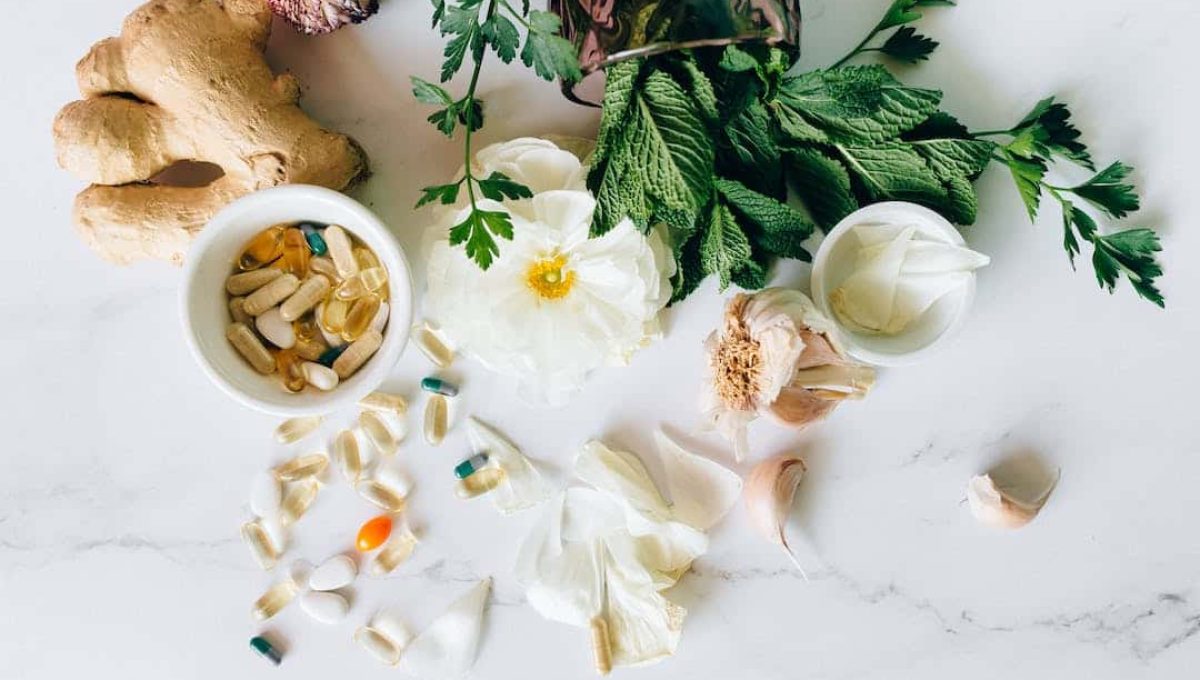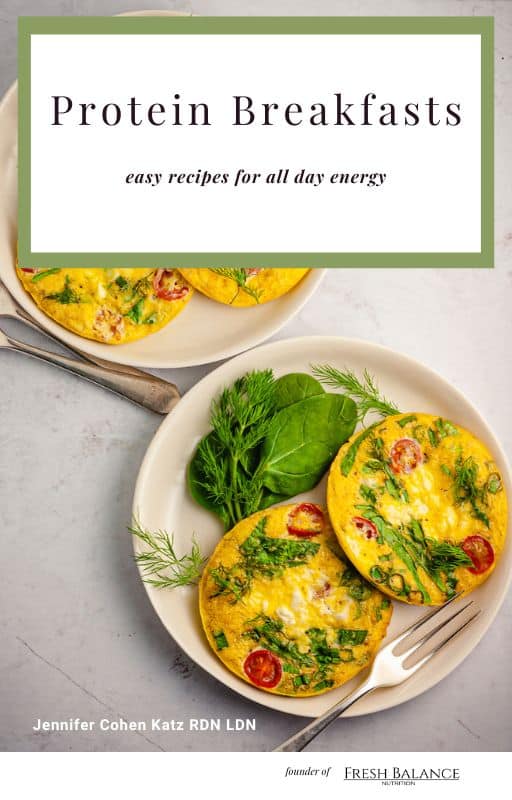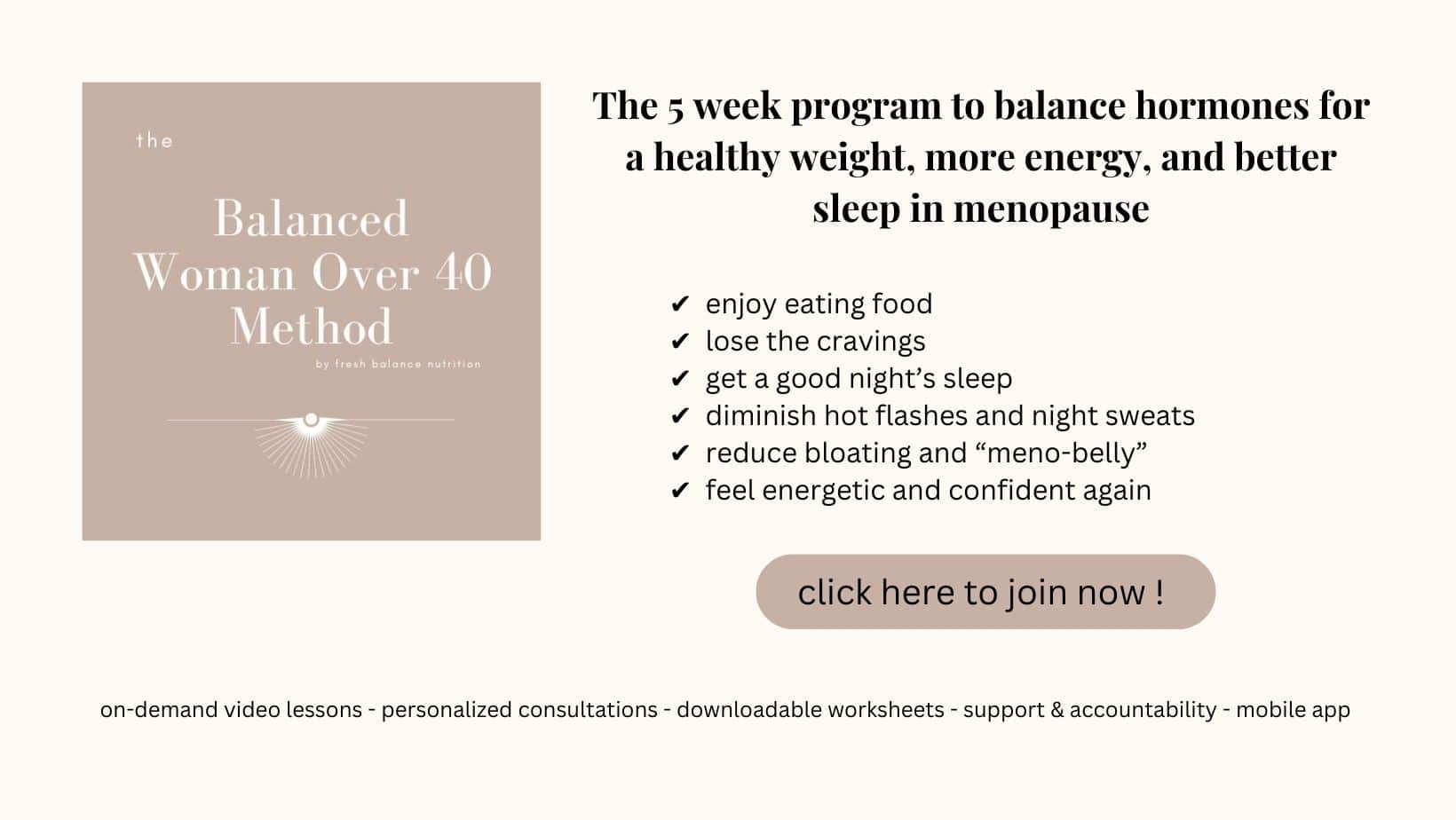Adaptogenic powders, pills, and teas are very popular for wellness right now. They can help manage stress, boost energy, focus your mind, and strengthen your immune system. But should you take stress-reducing ashwagandha for menopause symptoms?
What is an adaptogen?
Think of adaptogens as your body’s chill squad—natural substances, often from plants, that help you roll with the punches when life gets a bit too crazy. They’re like your body’s personal stress managers, helping you adapt to whatever’s thrown your way and keeping things in balance. Whether it’s rhodiola rosea boosting your mental and physical energy or ashwagandha being your go-to stress buster, these adaptogens are like the cool, calm friends your body calls in for backup when things get a bit too hectic.
What is ashwagandha?
Imagine Ashwagandha as your body’s ultimate chill pill. It’s like your personal zen master, helping you tackle stress and keeping your cool when life goes into overdrive. This superhero herb is all about boosting your resilience, so you can handle whatever craziness comes your way.
Ashwagandha helps your body adapt to different types of stress. It strolls into your system and tells stress to take a hike. It’s like a soothing hug for your nerves, calming you down without making you feel like a zombie. It’s got this magical way of balancing your energy levels, so you’re not bouncing off the walls or dragging your feet. Plus, it’s like a secret weapon for your mood, giving you that extra dose of positivity.

How can adaptogens help with menopause symptoms?
Calming adaptogens, like ashwagandha, can be your superhero during the menopause rollercoaster. Picture this herb as your calm and collected best friend, ready to tackle those not-so-fun symptoms.
So, you’re in menopause, dealing with hot flashes, mood swings, and others from the long list of symptoms. Ashwagandha steps in like your cool, collected wingwoman. It’s got this fantastic knack for balancing out your hormones – working backstage, making sure everything runs smoothly. Of course this and other adaptogens do their best work alongside nourishing food and other healthy lifestyle habits.
When it comes to hot flashes, Ashwagandha says “Chill out!” and helps dial down the heat. It’s like turning down the thermostat on the fiery moments, so you can keep your cool.
Then there’s the mood swings. Ashwagandha swoops in, giving your mood a pep talk. It’s like a gentle nudge to your emotions to keep it all steady.
And we can’t forget the fatigue and sleep struggles. Ashwagandha’s got your back here too, promoting a sense of calm that helps you get some quality slumber without the late-night tossing and turning.
Are there any reasons I should not take ashwagandha?
Ashwagandha is one of the most helpful herbs, but there are a couple of things to keep in mind:
If you’re on thyroid medication for hyperthyroidism, ashwagandha might not be right for you. It can mess with your T3 and T4 thyroid hormones, so it may not the best match for you.
Ashwagandha has immune-stimulating properties. This means it can interfere with the action of immunosuppressive drugs.
It is also high in iron, so if you have any issues with elevated iron it’s a good idea to skip it. It’s always a good plan to talk things over with your health care provider before bringing ashwagandha onboard.
What is the right dose of ashwagandha for menopause?
For Ashwagandha and menopause symptoms, a common range is around 250–500 milligrams a day. But there’s no one-size-fits-all.
Start slow with 250 mg and see how your body responds to it. If everything feels good, you can work your way up to 500 mg if needed. It’s best to take it during the second half of the day because of the calming effect.

How can I find high quality supplements?
Adaptogens are considered supplements and the supplement scene is a bit like the wild west. There’s not much regulation so you want to be careful to choose quality products.
In a recent review by ConsumerLab.com, only 56% of the ashwagandha products they looked at had the right amount of active ingredients. ConsumerLab.com is a good resource for vetting the best supplements.
Another issue with some supplements is they’re all blended together, so it’s impossible to tell how any one particular adaptogen is measuring up. Some don’t list the amounts either. Dosage matters. You want to know how much you are taking.
Check the supplement label. You want to find the organic tag and a third-party certification like U.S. Pharmacopeia, the NSF, or Consumer Labs to make sure you’ve picked a quality product. I’ve hand-selected my favorites in my formulary through Fullscript. Take a look and let me know if you have questions about ashwagandha or other adaptogens that might be most supportive for your journey through menopause.








